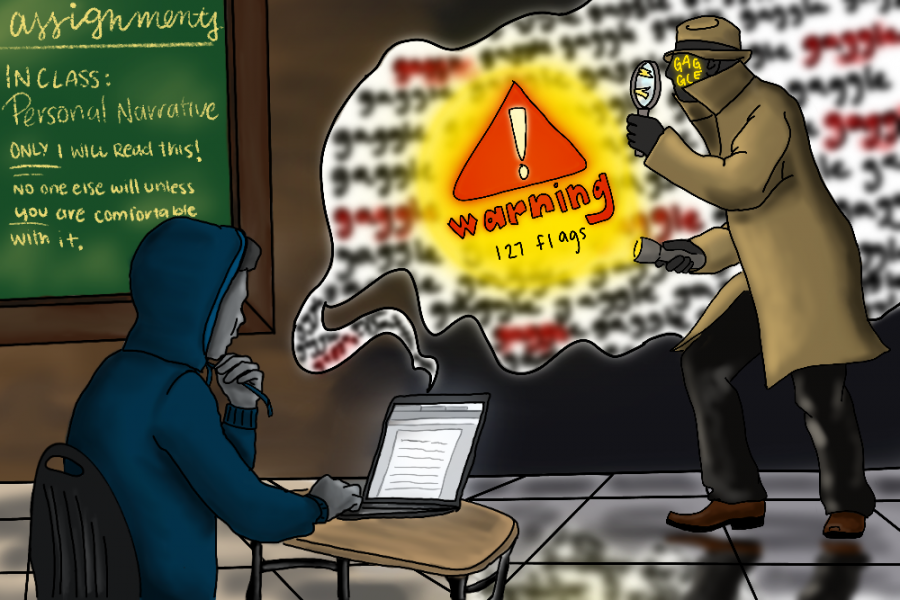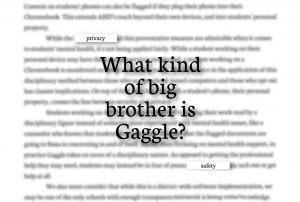Safety measure crosses line between security, privacy
Despite good intentions, district software for monitoring student writing may do more harm than good
December 10, 2021
Sex. Drugs. Knives. Had this been written on an AISD Google Doc, it would be flagged for content by a software called Gaggle and sent to assistant principal Andy Baxa. He reads each and every flagged item and if he finds an issue, he can make a call. In some cases, he might call the student’s counselor. In extreme cases, a student’s writing could lead to a call to the Austin Police Department or Child Protective Services.
Every time a student logs into a district-issued device, they surrender their privacy to the administration. Per district policy, every paper they write and every email they send gets combed through for a certain list of words. The list includes words related to violence, drug use and other sensitive topics. Content on students’ phones can also be flagged if they plug their phone into their Chromebook. This extends AISD’s reach beyond their own devices, and into students’ personal property.
While the intentions behind this preventative measure are admirable when it comes to students’ mental health and campus safety, it’s not being applied fairly. While it’s unconfirmed whether Gaggle extends to students’ personal computers, it is certainly used on district-issued Chromebooks. The potential difference in the application of this disciplinary method between those who accept school-issued computers and those who opt out has classist implications. On top of that, searching through a student’s phone, their personal property, crosses the line between security and privacy.
Students working on AISD services are subjected to having their work read by a disciplinary figure instead of someone more experienced with mental health issues, like a counselor who knows that student and their story. The fact that the flagged documents are going to Baxa first is concerning in and of itself. Rather than focusing on mental health support, in practice, Gaggle takes on more of a disciplinary nature. As opposed to getting the professional help they need, students may instead be in fear of punitive action and not reach out or get help at all.
We also must consider that while this is a district-wide software implementation, we may be one of the only schools with enough transparency for Gaggle to be public knowledge. Principal Griffith’s effort to make teachers aware of Gaggle is commendable; however, it still seems many students are unaware that their work is being vetted to this extent. More transparency is necessary when it comes to the level to which students are surrendering their privacy.
If one of the the main intentions behind Gaggle is truly mental health support, then it should work for that function in practice and not just in theory. Counselors should be the ones reading flagged work, looking only for present threats to the student and not for ways to incriminate them. Gaggle will be a more effective tool if students feel that they can share their stories without being punished. If the classroom is a safe space where students feel free to express themselves, the possibility will greatly increase that an at-risk student gets the support they need.







